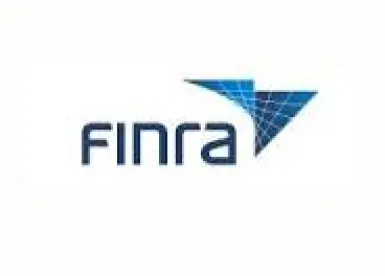On Jan. 9, 2020, the Financial Industry Regulatory Authority (FINRA) released its 2020 Risk Monitoring and Examination Priorities Letter (“Priority Letter”), in which it identifies its areas of examination focus for 2020. The cover note also highlights key changes in FINRA’s risk monitoring and examination program. These changes include the consolidation of FINRA’s three examination programs into a single risk monitoring framework. As part of this new framework, FINRA expects to categorize every FINRA member firm (“Firm”) into one of five business categories: (1) Retail; (2) Capital Markets; (3) Carrying and Clearing; (4) Trading and Execution; and (5) Diversified. Additionally, the cover note details FINRA’s plans to assign each Firm a senior agency leader who will be responsible for the Firm’s examination and risk monitoring.
As part of FINRA’s continuing efforts to provide Firms with compliance and risk management support, the president’s note also points out that this year’s Priority Letter includes a list of practical considerations and questions that Firms may use to assess and evaluate their risk management programs, as well as a new appendix with links to additional FINRA resources related to examination priorities.
FINRA’s 2020 Priorities
FINRA’s central examination priorities have addressed, and still include:
-
obligations related to suitability determinations;
-
outside business activities;
-
private securities transactions;
-
private placements;
-
communications with the public;
-
anti-money laundering (AML);
-
best execution;
-
fraud;
-
insider trading and market manipulation;
-
net capital and customer protection;
-
trade and order reporting;
-
data quality and governance;
-
recordkeeping;
-
risk management; and
-
general supervision.
Consistent with the approach taken in its 2019 Priority Letter, the 2020 Priority Letter attempts to limit repetitive discussions of certain topics that have been central to its focus in the past. The 2020 Priority Letter instead places its emphasis on topics that FINRA has not articulated in prior letters. Therefore, FINRA’s discussion of its 2020 priorities focuses on sales practice and supervision, market integrity, financial management and firm operations.
Sales Practice and Supervision
This year, FINRA expects to continue to evaluate a Firm’s compliance with sales practice and supervision obligations. Areas of focus will include complex products, variable annuities, private placements, fixed income mark-up/mark-down disclosures, representatives acting in certain positions of trust or authority, and senior investors. In addition, FINRA will focus its reviews on the following new and emerging areas:
-
Regulation Best Interest (Reg BI) and Form CRS. On June 5, 2019, the U.S. Securities and Exchange Commission (SEC) promulgated Regulation BI, which establishes a new standard of conduct for broker-dealers when making securities-related recommendations to retail customers. The compliance date of the new rule is June 30, 2020. FINRA expects to utilize the first part of the year to assess the effectiveness of planning for compliance with the new rule and implementation challenges. Thereafter, FINRA will examine a Firm’s compliance with the rule, with Form CRS, and with related SEC guidance.
-
Communications with the Public. FINRA will continue to assess a Firm’s compliance with core obligations, such as FINRA Rule 2210 (Communications with the Public), as well as related supervisory and recordkeeping requirements set forth in FINRA Rule 3110(b)(4) (Supervision), FINRA Rule Series 4510 (Books and Records Requirements), and Securities Exchange Act of 1934 (Exchange Act) Rules 17a-3 and 17a-4 (Books and Records Requirements). In addition to these traditional areas of focus, FINRA will also review how Firms are reviewing, approving, supervising, and distributing retail communications regarding private placement securities on digital distribution platforms and conventional channels, as well as a Firm’s use of various digital communication channels (e.g., texting, messaging, social media, or collaboration applications).
-
Cash Management and Bank Sweep Programs. Cash management services that sweep investor cash into bank sweep programs will also be the subject of FINRA’s review this year. Firms that utilize such services will be evaluated for their compliance with FINRA rules, including FINRA Rules 1017 (Application for Approval of Change in Ownership, Control, or Business Operations), 2010 (Standards of Commercial Honor and Principles of Trade), 2210 (Communications with the Public), Exchange Act Rule 15c3-1 (Net Capital Rule) and Exchange Act Rule 15c3-3 (Customer Protection Rule).
-
Sales of Initial Public Offering (IPO) Shares. FINRA examinations also will focus on transactions involving initial public offerings. FINRA will examine whether Firms are compliant under FINRA Rules 5130 (Restrictions on the Purchase and Sale of Initial Equity Public Offerings) and 5131 (New Issue Allocations and Distributions).
-
Trading Authorization. FINRA will review whether Firms have reasonably designed supervisory systems to detect and address registered representatives exercising discretion without written authorization from the client, as required under FINRA Rule 3260 (Discretionary Accounts).
Market Integrity
In keeping with prior years, FINRA will continue to assess a Firm’s compliance with obligations discussed in prior years’ letters related to market integrity. However, additional areas of FINRA’s focus will include the following:
-
Direct Market Access Controls. As firms are increasingly turning to automation and technology to conduct high-speed trading, the potential risk to the financial condition of firms, the integrity of trading decisions, and the stability of financial systems significantly increases. FINRA will therefore assess a Firm’s compliance with Exchange Act Rule 15c3-5 (Market Access Rule), focusing on issues relevant to the Firm’s business activities and associated risks.
-
Best Execution. FINRA will examine whether Firms are using reasonable diligence to determine whether their customer order flow is directed to the best market given the size and type of order, the terms and conditions of the order, and other factors as required by FINRA Rule 5310. In this regard, FINRA’s areas of focus will include the review of Firms’ routing decisions, odd-lot handling, policies and procedures for best execution and fair pricing for U.S. Treasury securities, and handling of option orders.
-
Disclosure of Order Routing Information. FINRA will be evaluating a Firm’s compliance with the amended Regulation National Market System (NMS) Rule 606, which requires broker-dealers to provide customer-specific reports for not held orders in NMS stocks.
-
Vendor Display Rule. Rule 603 of Regulation NMS (“Vendor Display Rule”) generally requires broker-dealers to provide a consolidated display of market data for NMS stocks for which they provide quotation information to customers. FINRA will be assessing the adequacy of Firms’ controls and supervisory systems to provide their customers with the current consolidated National Best Bid or Offer as required by the Vendor Display Rule.
Financial Management
In addition to continuing to evaluate a Firm’s overall financial risk management programs, a Firm’s compliance programs relating to Exchange Act Rule 15c3-3 (Customer Protection Rule) and Exchange Act Rule 15c3-1 (Net Capital Rule), FINRA has indicated that it will focus its assessments on the following new areas:
-
Digital Assets. FINRA indicated that it is receiving an increasing number of New Member Applications and Continuing Member Applications from Firms seeking to engage in business activities related to digital assets. As the creation and movement of digital assets raise certain regulatory issues under federal securities laws, FINRA will evaluate Firms’ digital asset activities for compliance with federal securities laws and regulations, and to assess any impact on financial stability and the capitalization of the Firm.
-
Liquidity Management. FINRA will continue to review Firms’ liquidity management practices. FINRA’s areas of focus will include those areas that FINRA has previously addressed in its Regulatory Notice 15-33 (Guidance on Liquidity Risk Management Practices), as well as those that may create challenges for clearing and carrying firms’ contingency funding plans.
-
Contractual Commitment Arising from Underwriting Activities. FINRA will review Firms’ underwriting activities and assess whether such activities are compliant with obligations under Exchange Act Rule 15c3-1(c)(2)(viii).
-
London Interbank Offered Rate (LIBOR) Transition. As the retirement of the LIBOR draws closer, FINRA expects to engage with firms outside of its examination framework to evaluate industry readiness for the LIBOR’s retirement.
Firm Operations
FINRA will continue evaluating Firms’ supervisory controls relating to the Exchange Act Rule 10b-10 and FINRA Rule 2232 (Customer Confirmations), as well as Firms’ compliance with FINRA Rule 3310 (Anti-Money Laundering Compliance Program). Additionally, FINRA will focus its assessments on the following new areas:
-
Cybersecurity. Firms and customers are increasingly relying on technology for their business operations and interactions. As such, cybersecurity has become an increasingly significant operational risk for Firms. FINRA expects to “thoroughly” assess the policies and procedures of Firms to determine whether they are reasonably designed to protect customer records, and Firms should anticipate that this review will also look to oversight of service providers utilized by a Firm.
-
Technology Governance. FINRA will review whether Firms have adequate governance in place to implement technology platforms and whether Firms’ have developed procedures and adequate controls to comply with relevant rules and regulations, including FINRA Rules 4370 (Business Continuity Plans and Emergency Contact Information), 3110 (Supervision) and 4511 (General Requirements), as well as Exchange Act Rules 17a-3 and 17a-4.
Conclusion
Aside from the foregoing, it is also expected that examinations will include inquiries into a variety of other areas based upon changes in market conditions, industry practice, investor protection, and the business model of each FINRA member firm. Also, developments during the year can prompt FINRA to expand its priorities and/or shift its focus.




 />i
/>i

